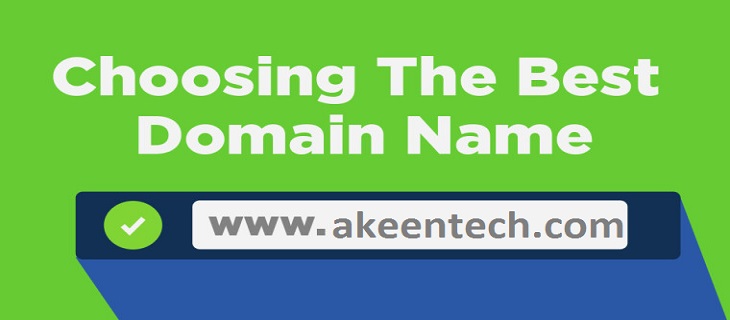Prior to the 2017 rollback of FCC regulations that would have protected online privacy, the push for net neutrality and online privacy seemed to be getting some traction. With FCC chair’s recent push to dismantle net neutrality.
Things seem to be taking a turn for the worse when it comes to the fight for online privacy. Suddenly, people are finding the need to take matters online privacy and anonymity into their own hands.
As a result, the demand for Virtual Private Network (VPN) has skyrocketed. The use of VPN software is the easiest way for the average citizen to protect his/her online privacy from the snooping eyes of the government, ISPs, and cybercriminals.
The popularity of VPNs has led to a surge in fake VPNs in the market. This piece focuses on the warning flags and tell-tale signs to help you spot fake VPN services from the genuine ones. Read on for more information.
The Warning Signs
Fake VPNs capitalize on the fears of internet users, often with limited technical knowledge. More and more internet users are hopping on the VPN wagon every day, which is understandable when you consider the benefits.
The problem is that sometimes, the wagon turns out to be a big-time dupe. There are a lot of fake VPNs in the market, so don’t be a victim of a fake VPN scam. Here warning signs that you are looking at a fake VPN:
#1. Free VPNs
Free VPNs are hard to resist. But if you have been around for some time, you know that nothing in life is truly free. Online services, including VPN, are no exception.
If an online service is being advertised as free, the user is most likely the product. In the case of free VPNs, your personal data including browsing history, location, the apps you use, etc. is the currency. Some free VPN services have been accused of engaging in shady activities.
Hotspot Shield, one of the most popular ‘free’ VPN services in the world has been accused of selling users’ private data to advertising agencies. Hola, another ‘free’ VPN, is accused of selling users’ bandwidth. Hola VPN is alleged to turn users into botnets.
This allowed the VPN provider to sell users’ internet bandwidth to be used as a dedicated server for funnelling internet traffic. In most cases, ‘free’ VPNs are dummies that will do nothing for your privacy — at best.
Read Also:
-
Tips to Protect Yourself from Laptop Radiation
-
How To Create A Photography Logo: Smart Tips
-
Top 5 Gaming laptops
-
8 Daft Reasons That Makes An Animated Video A Catastrophe
-
How To Protect Your Laptop From Liquid (Water) Damage
#2. No Refund Policy
Does the VPN provider offer a money-back guarantee? If they don’t, there’s a good chance that you are looking at a fake VPN. Most legitimate VPNs come with a 7-30 days money-back guarantee.
A VPN provider that doesn’t have a clear refund policy means that you should move on to the next option. A genuine provider ought to give you some time to try the service and see if it fits your needs. If they don’t have enough confidence in their services to do that, why should you?
#3. Customer Support
A legitimate VPN service provider must have extensive support options for their subscribers. Sparse or non-existent customer support means that you are dealing with a bunch of frauds.
Look for online forums and official social media presence. It’s a bad sign if you can’t find anything. As a test, make a query to see how fast the customer support team gets back to you if they do respond at all.
#4. Unsubstantiated Claims
It’s usually a fake VPN when the service provider continuously touts themselves as being the most private, most secure, or the fastest. There’s a number of reputable third-parties who provide non-biased assessments and evaluation of VPNs.
Look for third-party reviews of the VPN that is self-proclaimed to be the fastest or the most private etc. If you can’t find any, then you are looking at an unquestionably fake VPN.
#5. Dedicated Mobile App
Developing a good app for Android and iOS takes a lot of time and money. Does the VPN you are looking at have a dedicated mobile app?
If the answer is NO, this is a huge warning sign. Move on to the next option. Any legitimate VPN service will have a dedicated mobile application.
The process of finding a trustworthy VPN provider can be daunting. But there’s no compromise when it comes to that. You need to know that a VPN service will not mishandle your personal data.
Gather as much information as you can. While it’s not expected for a VPN provider to completely transparent, a legitimate VPN service will level with you on a number of issues.
What kind of encryption does the VPN service use? A fake VPN will not list the encryption they use. That’s probably because they use obsolete encryption that is insecure or they don’t have any kind of encryption at all. How long has the VPN company been in business? Choose established and reputable providers who have been in business for a long time to reduce the chances of getting duped by a fake VPN.


1 Comment
Michal Lee
Everything is so well explained in this article with engaging and informative content. Thanks for sharing all these warning signs for fake VPN.